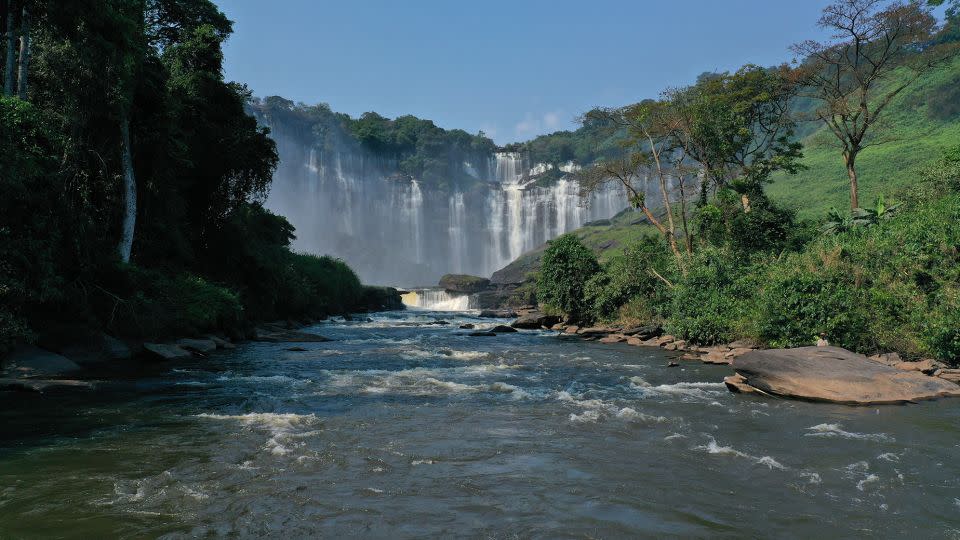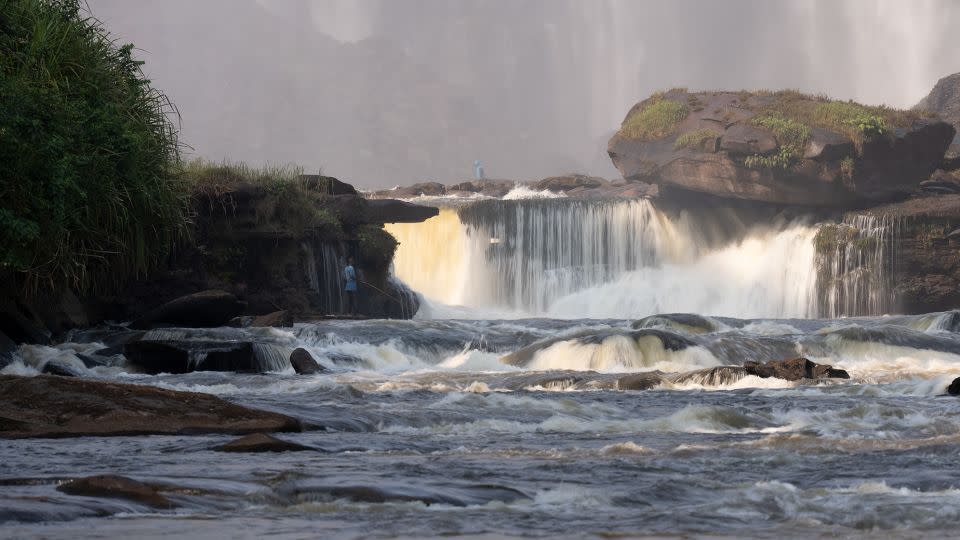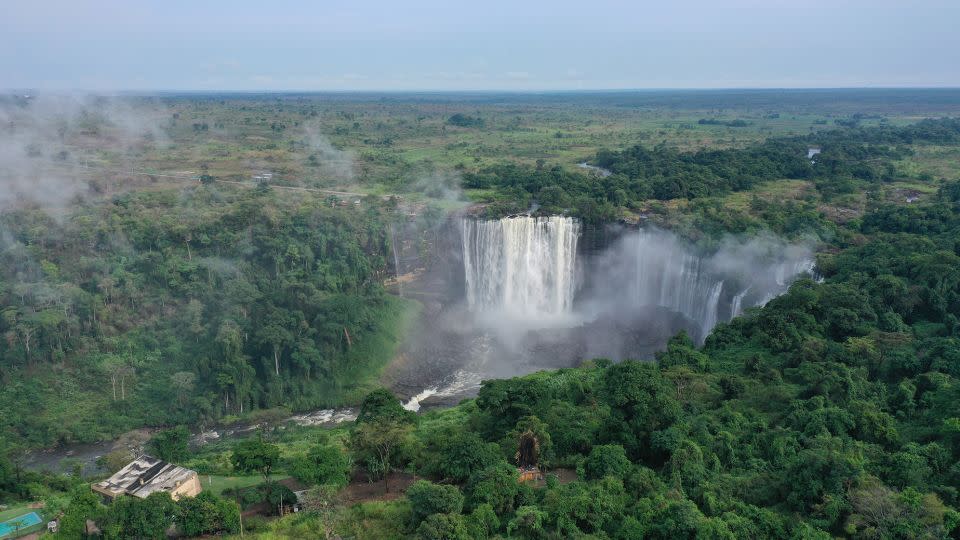The incredible ‘sacred’ waterfall in Angola that you’ve probably never heard of
Editor’s Note: This CNN Travel series is, or was, sponsored by the country it highlights. CNN retains full editorial control over subject matter, reporting and frequency of the articles and videos within the sponsorship, in compliance with our policy.
“No one can say that God doesn’t exist when we see the wonders that God has done here.” That was Sebastião Gaspar Agostinho’s reaction as he visited Kalandula Falls for the first time.
Agostinho, accompanied by a group of women from his church, made an hours-long bus journey just to see the cascade, which is one of Africa’s largest waterfalls, and it was worth the drive.
“I have seen the Kalandula Falls on television,” he says. “I have seen pictures of the Kalandula Falls, but today, seeing it in person, the impact is different.”
The waterfalls, which lie almost 400 kilometers (240 miles) east of Angola’s capital Luanda, in Malanje Province, are traditionally believed to be sacred. Visitors basking in their immense power can understand why.
The experience begins at the parking lot near the falls. Even here, out of sight of the attraction, visitors can feel the energy generated by the massive amounts of water crashing onto the rocks below.
It’s approached by walking across an even field of large stones that leads to the top edge of the falls. From here it’s possible to get a true sense of the size and power of Kalandula Falls – the roaring waters span a width of 400 meters, with a drop of 100 meters.
Spiritual history

The spectacle is wreathed in a cool mist that locals say is part of its spiritual history.
“What the elders say is that in the past, the Kalandula Falls were a sacred place,” says Nelson Andre, the director of tourism and culture in Kalandula. “It’s a location where rituals were performed to calm the gods and ask for well-being, health and prosperity for society in general.”
Kalandula (sometimes written as Calandula) is only a fraction of the width of Victoria Falls, Africa’s largest waterfall with a width of more than 1,700 meters, but it is almost just as tall with a powerful and relentless flow of water.
“It is not possible for a man to do what happens in these Kalandula Falls,” says Nelson Andre. “Rain or shine, the water never dries up, there is always water. It is the place where God took with his hands and painted the Kalandula Falls.”
To get the full experience of the falls, visitors need to venture down a steep and rocky trail that takes them to the bottom. It takes about 30 minutes to make the hike along part of the Lucala River that feeds Kalandula.
Those who complete the trek are gifted with a picturesque sight that will wow their social media followers. They’ll find themselves almost surrounded by the horseshoe-shaped waterfall, which creates a thundering backdrop of cascading water.
On most days the view will also include a rainbow so vivid you may want to make sure a pot of gold isn’t nearby.
Hidden treasure

“Everybody that comes here like me feels the same feeling because what this landscape shows us is amazing,” says Pedro Francisco, a local guide who takes people down to the bottom of the falls every day.
“You can come here with your problems and when you come down here it all blows up. You forget all the problems you have.”
The Kalandula Falls are truly a hidden treasure in Angola. This is partly because they’re not heavily promoted as a tourist destination and also because of their location.
There’s only one major road that connects the area to Luanda and many parts of it are riddled with potholes or patches of damage – so it’s a long bumpy ride to get there.
Although there are currently no restaurants or shops near the falls, making them the area’s sole draw for visitors, local authorities want to change that.
“We need to have infrastructure here that will attract tourists and make them feel that they have what they need within the Kalandula Falls,” Nelson Andre says. “We believe that tourists are attracted not only by the divine wonder but also by the things that exist around it. Having good services will make tourism grow at the municipal level.”
Friendly welcome

There is one hotel – a very modest bed and breakfast but in an almost perfect location. It’s called Pousada Quedas de Kalandula and it sits by itself on a lush green plateau right by the cascading waters.
Guests who stay there can see the falls from their balconies and enjoy breakfast on the patio, which also provides an unobstructed view. It also makes for awesome photo opportunities.
“It was first built in the 1950s, during the colonial era,” says Benvinda Ribeiro who manages the hotel.
She said the hotel has been revived after being shut down during the civil war that gripped Angola from 1975, after Portuguese colonial rule ended, to 2002. It reopened in 2017 after a three-year renovation.
Ribeiro says that 70% of her guests are foreigners. She hopes more people from inside the country come for the experience.
“Those coming to visit these wonders will be well received,” she says. “We want everyone to come, not only foreigners but also Angolans, they will always be well received in the same way, always with the same friendliness.”
For more CNN news and newsletters create an account at CNN.com

 Yahoo Sports
Yahoo Sports 
